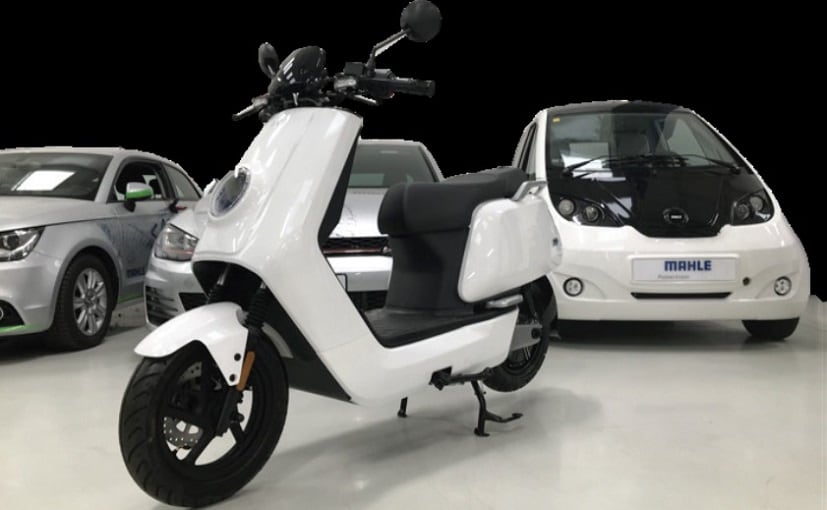Combining the benefits of supercapacitors and conventional lithium-ion batteries, new lithium-carbon technology enables an internal combustion-powered vehicle to deliver a full charge in a similar amount of time to refueling.

Lithium-carbon pack can be recharged at 20 kW in just 90 seconds
MAHLE Powertrain and Allotrop Energy have unveiled a new battery technology that offers ultra-fast recharging with good power density. Combining the benefits of supercapacitors and conventional lithium-ion batteries, new lithium-carbon technology enables an internal combustion-powered vehicle to deliver a full charge in a similar amount of time to refueling. Furthermore, Li-Si cells are free of rare-earth metals, fully recyclable, and not susceptible to runaway events.
However, in a collaborative project with Allotrop Energy, MAHLE Powertrain envisions how an electric moped could be used as an urban delivery vehicle powered by an inexpensive small-capacity lithium-carbon battery that can be used as a stopper. It can be recharged in between 90 seconds.
Allotrop Energy’s lithium-carbon technology combines the benefits of supercapacitors and conventional lithium-ion batteries to deliver a cell that can be recharged quickly and still retains good energy density. The technology consists of a high-rate battery-type anode and a high-capacity electric double layer capacitor (EDLC)-style cathode, separated by an organic electrolyte.
Read also: MAHLE Powertrain Breaks New EV and Hydrogen Focused Test Chamber

Lithium-carbon cells are free of rare-earth metals, completely recyclable, and not susceptible to runaway events.
The result is a battery cell that suffers none of the thermal degradation effects experienced by conventional lithium-based batteries. Its stability, even at high temperatures, allows for high current delivery and rapid recharging, without the need for complex external cooling or elaborate battery management systems.
Additionally, its capacitor-style cathode enables a lifetime of 100,000 cycles, far longer than conventional batteries, while the elimination of rare-earth metals and the design’s full recyclability make it environmentally friendly during production and long after. Makes it better.
As part of the project, MAHLE Powertrain examined the scenario of a city-based e-moped fast-food delivery service with a target range of 25 km. A 500 Wh conventional lithium-ion battery would need a recharge mid-shift that, even with a fast-charger on, would take more than 30 minutes. In addition, regular fast charging reduces battery life to the point that it would need to be replaced every year or two.
However, the lithium-carbon pack can be recharged to 20 kW in just 90 seconds, meaning a full charge can be achieved in the time it takes for the next delivery.
“With ultra-fast charging, the size of the battery can be customized to suit the scenarios in which the vehicle will be used, and this results in not only weight savings but also cost reductions that overcome the constraints of decarbonization. and lowers it,” Bassett said. .
Dr. Mike Bassett, MAHLE Powertrain’s Head of Research, said, “The real challenge has come in designing an electrical architecture that is capable of absorbing such high rates. Additionally, with no suitable charging system on the market, that can be used to supply domestic power.” To deliver these charge rates, we created our own design.”
0 notes
Solution Bassett’s team scales power from a typical 7 kW single phase connection to deliver ultra-fast charging up to 20 kW using its own built-in capacitor-based energy store, thereby eliminating the need for cost and complexity. reduced. For expensive power grid connection upgrades.
for the latest auto news And ReviewFollow carandbike.com Twitter, Facebookand subscribe to our youtube Channel.
.